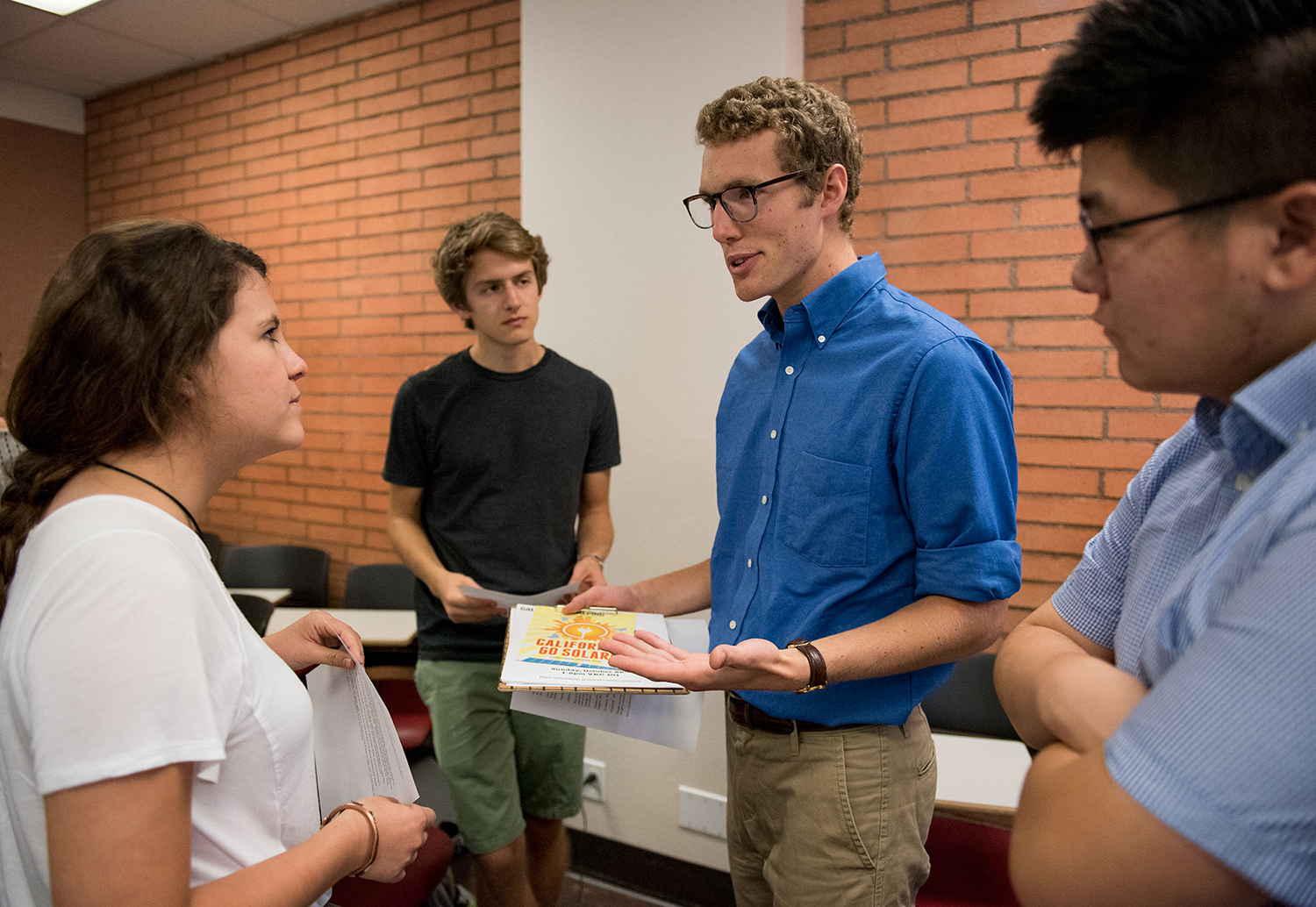Environmental groups host activist training for students

Crash course · Environmental student groups hosted a training session on Sunday for students to learn about the different aspects of advocacy such as social media strategy, recruitment and effective messaging. – Mariya Dondonyan | Daily Trojan
Students and grassroots organizers from various groups participated in an activist training hosted by the Environmental Core in collaboration with the CALPIRG USC chapter Sunday at the Von KleinSmid Center.
The training aimed to educate students about how to develop effective strategies to build student-led chapters, run campaigns for a sustainable future and achieve tangible results for environmental justice. Grassroots advocacy works to increase awareness of the importance of active participation in conversations on issues that matter.
“Democracy is about involving everyone to make the change,” said Sarah Dobjensky, organizing director for WISPIRG Students. “People get involved for different reasons such as altruism, self-interest, social needs — which are all legitimate.”
The guest speakers included Emma Crossen, development director of Courage Campaign, an online grassroot organizing community; Jenn Engstrom, organizing director for the CALPIRG student-chapters; Garrick Monaghan, campaign organizer at We are Impact and Dobjensky.
The training also covered four modules: effective recruitment, social media strategy, campaign planning and framing appeals and messages to decision-makers.
Crossen noted the success of online petitions such as one concerning Nestle pumping water in California, which received media coverage from the Los Angeles Times and The Guardian.
Ethan Bialick, a member of the Environmental Core and a senior majoring in business administration, believes that this training can be helpful to any group no matter what stage it’s at in its campaign. Bialick is part of the Go Solar Campaign, which presented the University administration with a business proposal to go solar by 2020.
“They can get out of [the training] basically those four modules and how to do each of those well and push [them] through,” he said. “We think that this can be really be both for activism and [professionally because] organizing is very much parallel to running a company well.”
Sarah Berry, an undeclared freshman and campaign coordinator for the USC Go Solar campaign, encouraged other students to take action.
“If you have an idea that you feel strongly about and that you think other people should also feel strongly about but you don’t know how to go about getting people interested or presenting it to the world, don’t be afraid of doing it,” she said. “You have a voice and you might not know quite how to harness it or use it effectively, but you can find out and you can learn how to do it. When you do [learn], you can make a huge impact. You might be only one person, but when we work together we can work real change.”
Berry also emphasized the urgency and the need for student activists.
“We do have the power to fix it, maybe not to completely bring it back to what it was but to help [as much as we can],” she said. “I want to be part of making the world a better place before we destroy what’s left.”
